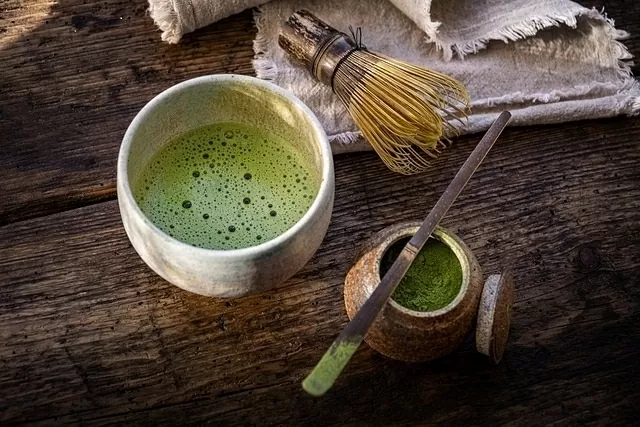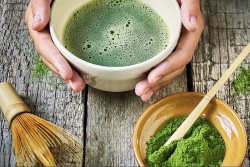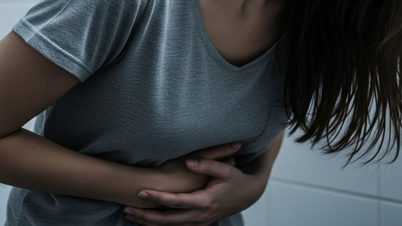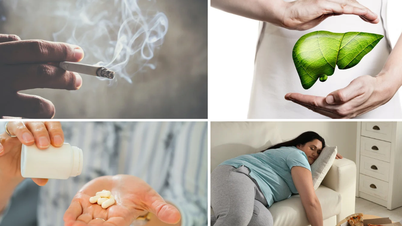There are many ways to enjoy matcha tea to reap its health benefits. (Source: Pixabay) |
What is Matcha?
Matcha is popular in health food stores and cafes, available as matcha shots, lattes, teas, and desserts. Like green tea, matcha comes from the Camellia sinensis plant. However, it is grown differently and has a unique nutritional profile.
Related News |
|
Farmers shade the plants used to produce matcha for most of the growing season. This lack of direct sunlight increases chlorophyll production, increasing amino acid content and giving the plants a darker green color.
After harvesting the leaves, the producers remove the stems and veins and grind the leaves into a fine powder. This is matcha.
Matcha contains nutrients from the entire tea leaf, and contains more caffeine and antioxidants than regular green tea. Here are 6 benefits and some side effects of consuming matcha.
Rich in antioxidants
Matcha is rich in catechins, a group of plant compounds in tea that act as natural antioxidants. They help stabilize harmful free radicals, compounds that can damage cells and contribute to chronic disease.
Matcha is grown in the shade. When the leaves are harvested, the catechin content is lower than other green teas. However, when dissolved in water, the catechin content is 3 times higher.
Adding matcha to your diet may increase your antioxidant intake, which may help reduce cell damage and prevent certain chronic diseases.
Helps protect the liver
The liver is vital to health and plays a central role in detoxifying, metabolizing drugs and processing nutrients.
A 2015 review published in the US National Library of Medicine of 15 studies found that drinking green tea was associated with a reduced risk of liver disease.
However, in 2020, some experts noted that, while matcha may benefit people with non-alcoholic fatty liver disease (NAFLD) by reducing liver enzymes, it may increase liver enzymes in people without NAFLD.
Some studies have shown that matcha prevents liver damage and reduces the risk of liver disease. However, more research is needed to examine its effects on the general population.
Enhance brain function
According to research, some of the ingredients in matcha may help boost brain function. One study of 23 people looked at how people performed on a series of tasks designed to measure brain performance.
Some participants drank matcha tea or a bar containing 4 grams of matcha, while the control group drank either a placebo tea or bar. Those who drank matcha showed improvements in attention, reaction time, and memory compared to those who drank the placebo.
Another small study published in the US National Library of Medicine in 2014 found that consuming 2 grams of green tea powder daily for two months improved brain function in older adults.
Matcha has a higher concentration of caffeine than green tea. Depending on the type, brand, and processing method, green tea tends to contain around 11–25 milligrams per gram (mg/g), while matcha contains 19–44 mg/g.
Matcha also contains a compound called L-theanine, which promotes alertness and helps avoid the energy crash that can occur after consuming caffeine.
Support cancer prevention
Matcha contains several compounds that have been linked to cancer prevention in test-tube and animal studies. For example, matcha is high in epigallocatechin-3-gallate (EGCG), a catechin that may have powerful anti-cancer properties.
Several laboratory and animal studies published in 2018 and 2022 in the US National Library of Medicine suggest that it may help prevent certain types of cancer, although more careful observation is needed.
Helps lose weight
Green tea is well known for its ability to promote weight loss and is often found in supplements. A 2020 review published in the US National Library of Medicine concluded that, along with diet and exercise, drinking up to 500 mg of green tea per day for 12 weeks can reduce body mass index.
Although most research has focused on green tea, matcha comes from the same plant and contains similar compounds.
Matcha tea is easy to make
There are many ways to enjoy matcha. You can make traditional matcha tea by sifting 1–2 teaspoons (2–4 grams) of matcha powder into a cup, adding 2 ounces (59 ml) of hot water, and stirring with a bamboo whisk.
You can also adjust the ratio of matcha powder to water depending on how strong you like your tea. To make a weaker tea, reduce the powder to half a teaspoon (1g) and mix it with 3–4 ounces (89–118 ml) of hot water. To make a stronger tea, mix two teaspoons (4g) of powder with just 1 ounce (30 ml) of water.
You can also:
- Stir into milk-based foods and drinks, such as lattes or rice pudding.
- Try it in desserts, such as matcha ice cream or cookies.
- Try making protein smoothies to boost the nutritional content of your favorite recipes.
Side effects and risks
Despite its health benefits, matcha is best consumed in moderation. Matcha contains more caffeine than green tea. Some caffeine may be beneficial, but too much can cause side effects, such as increased heart rate, according to a 2022 study published in the U.S. National Library of Medicine.
Some scientists have suggested that high levels of catechins may cause liver problems, although they note this is unlikely to happen when people consume green tea as food or beverage, according to a 2018 study in the US National Library of Medicine.
Drinking matcha may also increase your risk of exposure to contaminants such as pesticides, chemicals, and arsenic found in the soil where the tea plants are grown.
A 2018 study published in the U.S. National Library of Medicine found that 338 mg of catechins and EGCG per day is safe for adults to consume. This is about 4 grams of matcha, or two heaped teaspoons.
However, the maximum amount of matcha powder that can be tolerated may vary from person to person. To be safe, make sure to consume matcha in moderation.
Also, look for certified organic matcha to reduce the risk of ingesting impurities.
Source: https://baoquocte.vn/nhung-loi-ich-suc-khoe-neu-uong-tra-matcha-dung-cach-309479.html





























































![[Photo] General Secretary attends the announcement ceremony of Resolutions on merging administrative units in Ho Chi Minh City](https://vphoto.vietnam.vn/thumb/402x226/vietnam/resource/IMAGE/2025/6/30/ab1bd03cc8bb4f60b2665f4915f258c5)



































Comment (0)